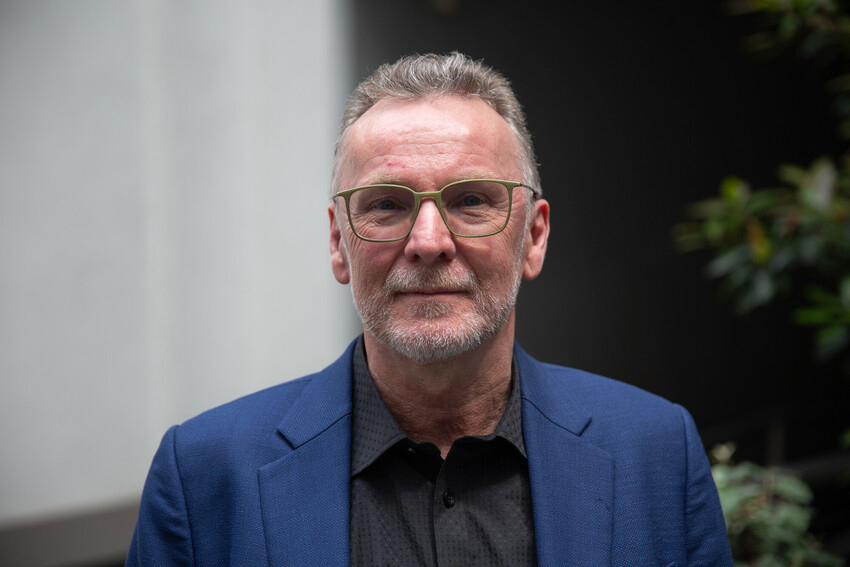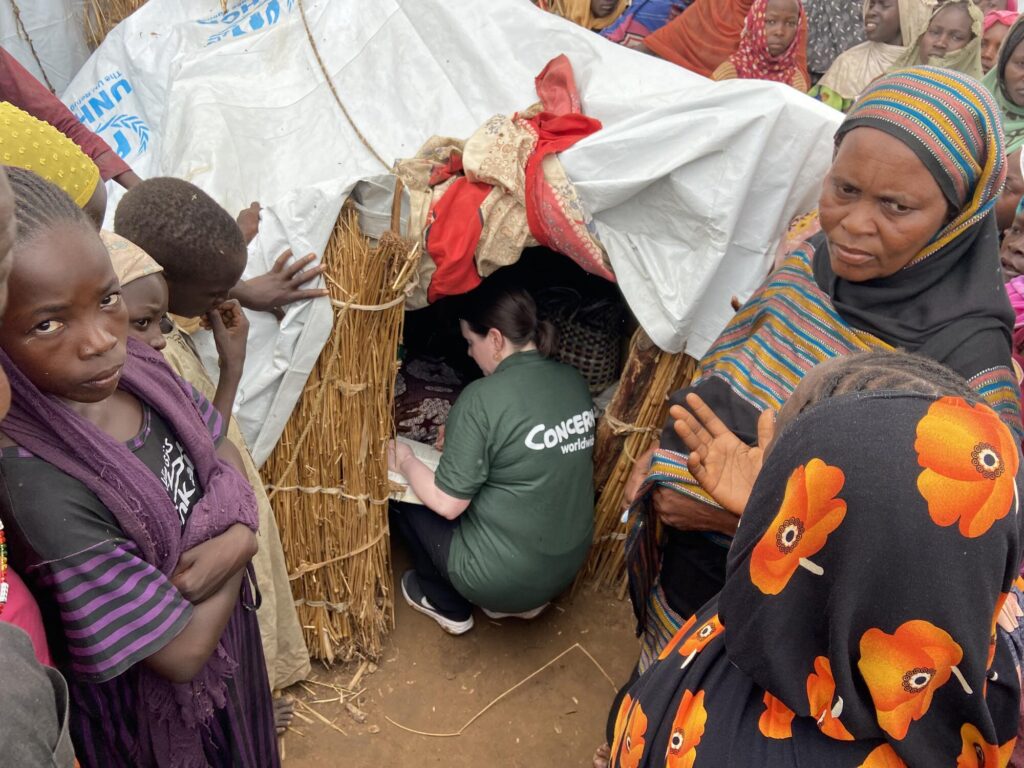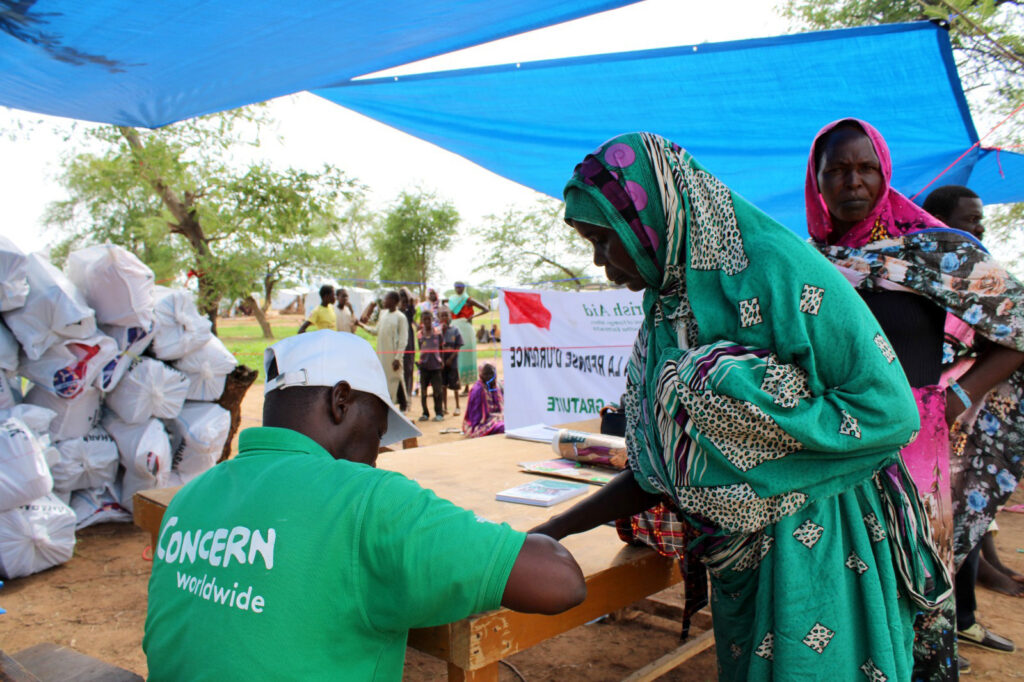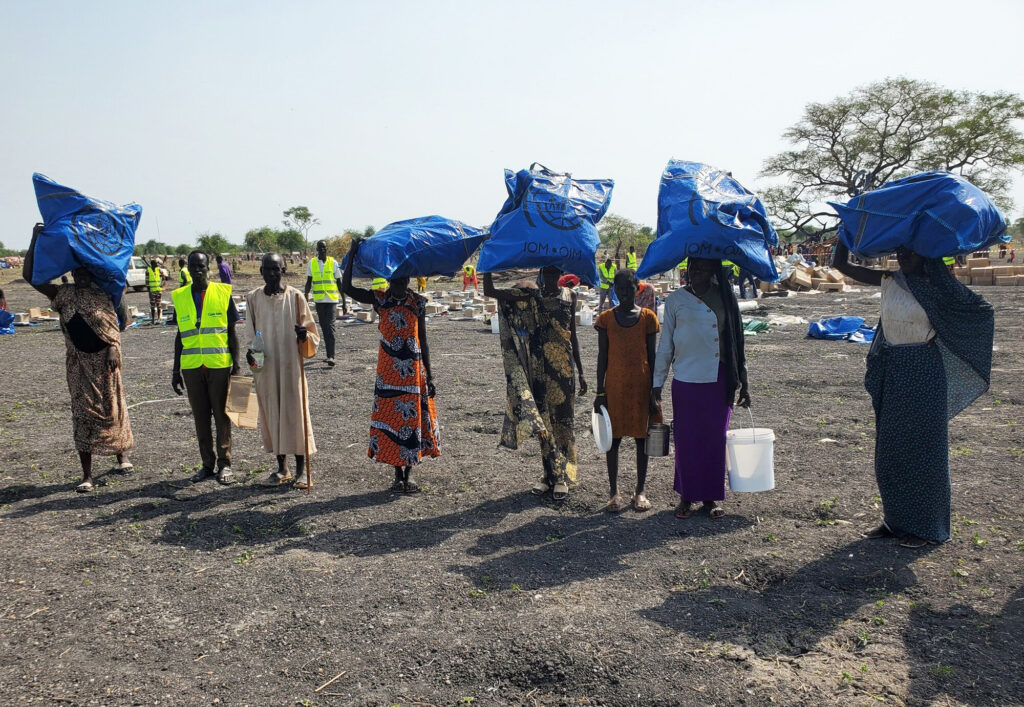The population Adré in eastern Chad, near the border with Sudan, has surged from 12,000 to over 200,000 in just three months, following the eruption of conflict in Sudan.
Concern’s Leo Roozendaal describes the scenes there, how Concern is responding to the deepening humanitarian catastrophe in Sudan and assisting those fleeing to Chad and South Sudan.

The view from a hill top in Adré, for as far as I could see, was a sea of tents. Tens of thousands of makeshift shelters, cobbled together using sticks, plastic sheeting, scraps of cloth – anything that can provide cover.
Many of the new arrivals had used what little money they had to buy shelter materials in local markets. Each shelter housed a family of people who were deeply traumatised and desperately in need of help.
Many have lost loved ones on their journey. Most of them are women and children who need clean water, food, health services and toilets.
Food distributions are slowly beginning to happen and many people are being relocated to safer and better serviced camps further inland. But more refugees arrive each day.
The town’s population has swollen from 12,000 to 200,000 in just three months, putting extreme pressure on the local community.
When you look around you can see how sanitation and disease prevention is a problem that will escalate fast. There are also many people in distress living very close to each other – and constantly on edge because they have not yet been able to deal with their trauma. Many tell harrowing stories of having seen loved ones shot.
Concern is also assisting those crossing into Chad further south in Sila, responding in the transit sites on the border and also in refugee camps inland where refugees are being relocated to.

We have distributed non-food items and dignity kits that contain basic items such as blankets, pots, mosquito nets and sanitary towels.
We are also running a mobile health clinic in one of the temporary sites along the border where staff are screening children for malnutrition and other illnesses and providing vaccinations, a pharmacy and midwife services.

Over 366,000 people have crossed from Sudan into Chad since April. A further 206,000 have crossed into South Sudan, where Concern’s teams are providing health and nutrition services, shelter materials and other non-food items.
In total over 920,000 have fled Sudan and a further 3.6 million are internally displaced. Almost 25 million people – over half the country’s population – are in need of humanitarian support.
Food prices are soaring, food production has been dramatically reduced and humanitarian aid access is limited. It is forecast that rainfall will be below average this year, which will further impact crops, livestock and the availability of water.
Widespread insecurity is seriously hindering the response by humanitarian organisations, with access and vital supplies being hindered.

Despite these challenges, Concern continues to deliver humanitarian assistance in Sudan, with programmes running in West Kordofan and South Kordofan as well as parts of West Darfur.
Concern’s response is mostly centred around provision of health and nutrition services, but they are continuing to face challenges moving goods and staff into and within the country.
It is only a matter of time before they run out of supplies in the various health facilities that they support and services come to a halt despite the ever increasing levels of needs across the country.
The levels of hunger in the country are deeply concerning. If humanitarian access doesn’t improve the outcomes will be catastrophic.
Time is running out for millions of Sudanese people. More funding for urgent humanitarian support is needed to save lives and prevent further escalation of this humanitarian catastrophe.
Author: Concern Worldwide


